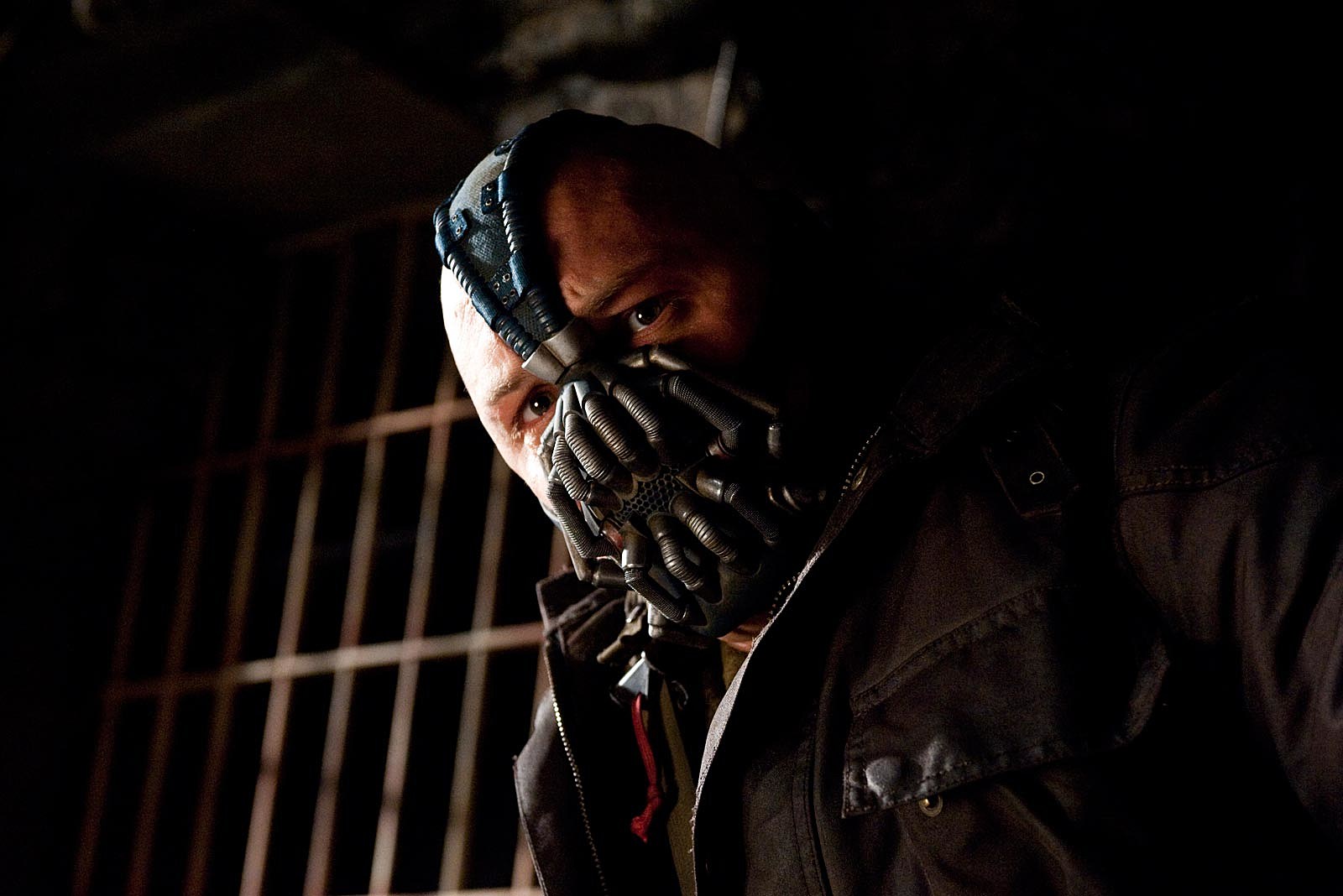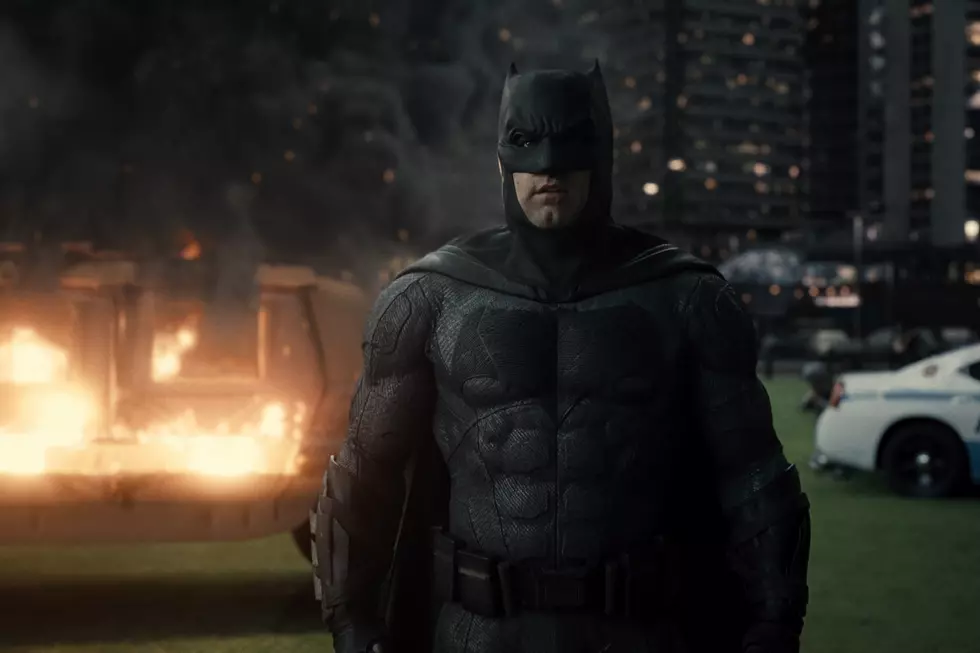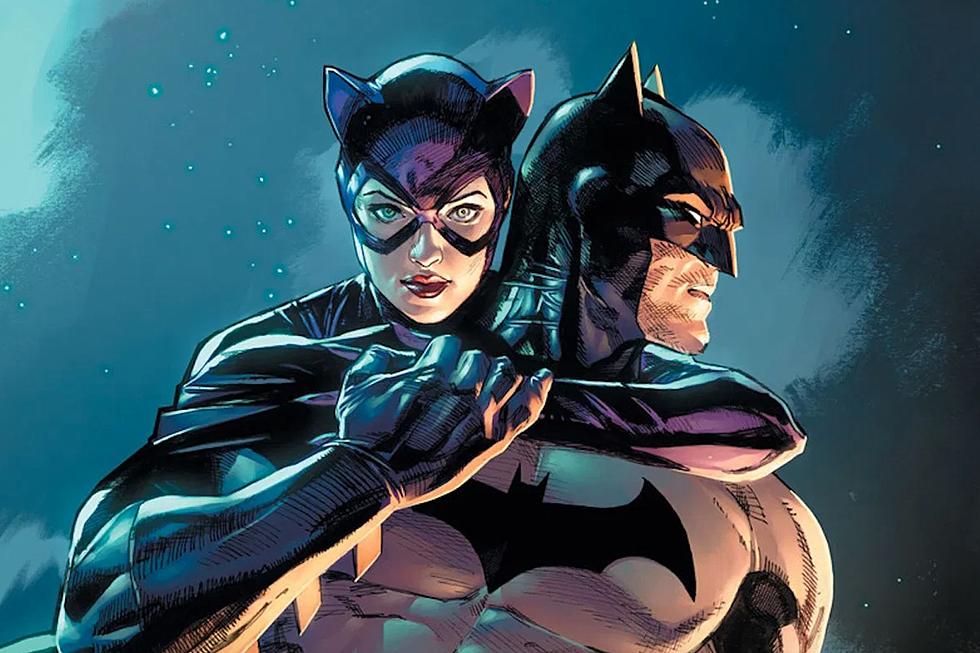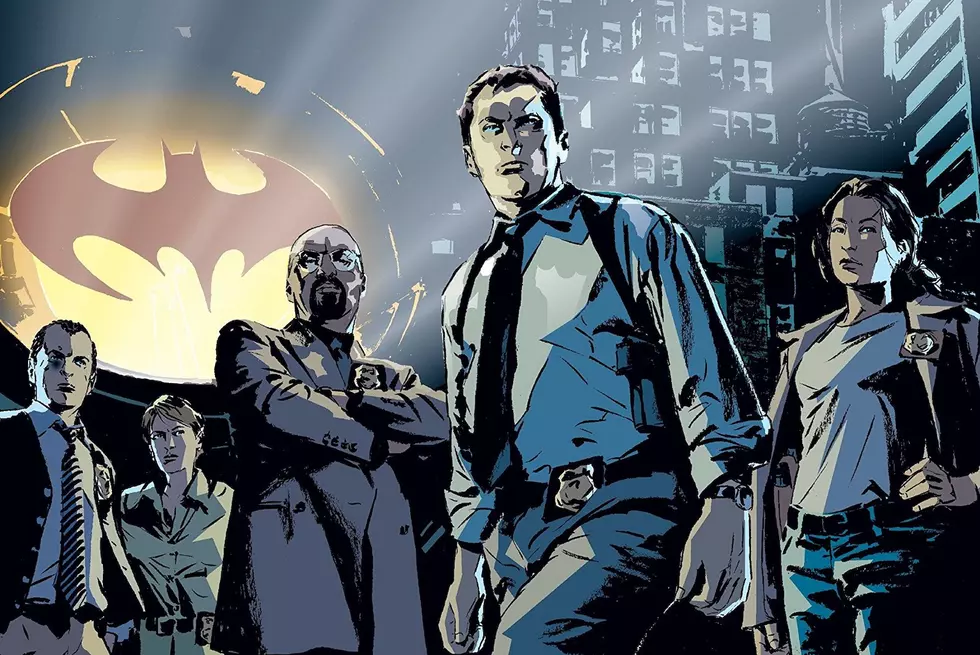
Logic and Symbolism In ‘The Dark Knight Rises’

Warning: The following contains major spoilers for The Dark Knight Rises. Proceed at your own risk!
It probably won't surprise anyone to learn that I liked The Dark Knight Rises quite a bit. I was, after all, part of the team here at ComicsAlliance that wrote somewhere in the neighborhood of 60,000 words about how much I loved Nolan's last Batman film, and I walked out of this one feeling satisfied with both the direction and the execution of the final chapter of his trilogy. It's solid, enjoyable, and interprets themes that are a core part of the Batman mythology in a way that we've never seen before on film. That said, I do think that it's probably the most flawed of Nolan's three Batman movies.My writing partner, Chad Bowers, told me that one of his biggest problems with Rises was that he didn't feel like it worked as a sequel to The Dark Knight, and in a lot of ways, he's right. Despite the emphasis on Harvey Dent, Rises feels like more of a throwback instead to Batman Begins, both overtly with the way that the plot ties tightly into the first movie and Cillian Murphy's surprising (to me) return as the Scarecrow, and also with the weird quirks that crop up in characterization.
 The most notable for me was at the end, when Catwoman rolls up and rescues Batman from Bane by shooting him with a gun. It's the same kind of climax that I had a problem with in Geoff Johns and Gary Frank's recent Batman: Earth One (which I don't think is a coincidence), and while Nolan does it with considerably more skill, the act leaves a bad taste in my mouth. Batman himself doesn't kill or use guns, but in Nolan's version, that's presented as a weakness. Having that be the way that a villain like Bane is defeated doesn't ring true at all -- especially given how enjoyable Bane and his ludicrous Broadway Musical bad guy voice are for the rest of the film.
The most notable for me was at the end, when Catwoman rolls up and rescues Batman from Bane by shooting him with a gun. It's the same kind of climax that I had a problem with in Geoff Johns and Gary Frank's recent Batman: Earth One (which I don't think is a coincidence), and while Nolan does it with considerably more skill, the act leaves a bad taste in my mouth. Batman himself doesn't kill or use guns, but in Nolan's version, that's presented as a weakness. Having that be the way that a villain like Bane is defeated doesn't ring true at all -- especially given how enjoyable Bane and his ludicrous Broadway Musical bad guy voice are for the rest of the film.
In fact, Batman's entire second fight with Bane is more than a little lacking, especially given how perfect the defeat of the Joker is in the last film. That was such an incredible moral victory, not just the triumph of one man over another, but of a city refusing to turn against each other, inspired by Batman to stand together against someone who preyed on their fears. Here, Bane is defeated because Batman magically gets better at punching between scenes for no apparent reason. The redemption of Gotham City, and of Batman himself, comes later; the villains are pretty incidental to it by that point.
Also, while he's a solid character throughout the film and the subject of one of the most emotional moments when he accidentally kills someone, that big reveal with John Blake at the end may well be the biggest groaner in super-hero movie history. I rolled my eyes so hard that I think I pulled a muscle.
But despite those flaws (and a few others), I still thought The Dark Knight Rises was great. A lot of that has to do with the character work on the part of both Nolan and the cast, particularly Bane and Catwoman. Anne Hathaway is legitimately amazing every time she's onscreen, but Hardy's Bane was a huge surprise. In a lot of ways, he's a direct attempt at recapturing what Heath Ledger did with the Joker, from the the voice and over-the-top swagger to the fact that he's got a complex, ever-spiraling plan that culminates in a massive lie meant to trap Batman. Even the core mechanic of his plan, the idea of an ordinary Gotham Citizen who's secretly a "triggerman" with the power of life and death over his neighbors, is a direct thematic callback to the moral dilemma that the Joker sets up for Gotham as the culmination of his plan. But to the credit of the film and actors, it never really feels like a retread as much as it's a further exploration of those themes.
 As someone who tends to read a lot into things -- particularly the moral victory at the end of The Dark Knight -- I was genuinely thrilled at how much Nolan decided to just literalize the ideas at the core of his story. For good or ill, there's very little subtlety to anything that's going on here, from Catwoman's desire for something that's literally called "the Clean Slate" to Christian Bale and Michael Caine saying their opinions of each other's actions out loud in a scene that would've been awful if it had been attempted by lesser actors.
As someone who tends to read a lot into things -- particularly the moral victory at the end of The Dark Knight -- I was genuinely thrilled at how much Nolan decided to just literalize the ideas at the core of his story. For good or ill, there's very little subtlety to anything that's going on here, from Catwoman's desire for something that's literally called "the Clean Slate" to Christian Bale and Michael Caine saying their opinions of each other's actions out loud in a scene that would've been awful if it had been attempted by lesser actors.
The entire second half of the film follows a logic that has absolutely nothing to do with reality, and everything to do with symbolism. From a realistic perspective, it makes no sense that every policeman in Gotham City would be sent underground to be buried alive for three months, but it works in context as a representation of law and order being overthrown and suppressed by Bane and his fanatical army of devotees. The same goes for the scene where Batman gets his spine broken and then pretty much just walks it off, does a few push-ups and decides that he doesn't have a limp anymore. No joke, I thought that part was great, but it's also something that's easy to laugh at for how much it completely does away with the concept of believability.
To be fair, though, the comic that sequence is based on involves Bruce Wayne recovering because his girlfriend has psychic healing powers that cause her to mentally regress to a five-year-old after she patches him up. Compared to that, recovering from paralysis by getting punched in the back and then doing a few crunches is downright sensible.
That's an interesting aspect of the film, too: The Dark Knight Rises wears its influences on its sleeves. It lifts directly from The Dark Knight Returns (I'm not going to lie, I was pretty excited to see the old cop and the young cop chasing Batman), Year One, Knightfall and No Man's Land, and there are smaller influences from plenty of other stories as well. But in mashing all of those up, it came away with something those stories could never have: an ending. Or at least, a kind of ending.
 Nolan has a luxury that the creators working in the Batman comics don't. He's not bound by having to have Batman show up five times next month in a self-perpetuating comic book story machine, so he can show us how his version of Batman ends, and that ending is a victory. In Begins, Batman sets out to become a symbol that's more than a man, and in The Dark Knight, we see how powerful that symbol can be. By the end of Rises, that symbol has truly grown to encompass more than one man ever could, to the point where the man at the core of it is no longer necessary. It's a complete and total victory: Gotham City is no longer a place that needs Batman to survive. The climate that led to his parents' murder -- revealed in Begins to have been a social construct created by the League of Shadows -- has been changed into something better. The extraordinary grip that crime held on the city has been broken, and with it, the need for Batman. He finally gets the happy life that he deserves, but he's also secure in the knowledge that if the need for Batman arises, there will always be someone there to help that won't have to resort to running around in hockey pads. Again, it's the symbolism of Batman as the hero without powers, the hero that "could be you" (if you happened to be born a billionaire with a photographic memory and a genetic disposition towards athletics) made literal. It's an interesting idea, and for Nolan's version of Batman, it works.
Nolan has a luxury that the creators working in the Batman comics don't. He's not bound by having to have Batman show up five times next month in a self-perpetuating comic book story machine, so he can show us how his version of Batman ends, and that ending is a victory. In Begins, Batman sets out to become a symbol that's more than a man, and in The Dark Knight, we see how powerful that symbol can be. By the end of Rises, that symbol has truly grown to encompass more than one man ever could, to the point where the man at the core of it is no longer necessary. It's a complete and total victory: Gotham City is no longer a place that needs Batman to survive. The climate that led to his parents' murder -- revealed in Begins to have been a social construct created by the League of Shadows -- has been changed into something better. The extraordinary grip that crime held on the city has been broken, and with it, the need for Batman. He finally gets the happy life that he deserves, but he's also secure in the knowledge that if the need for Batman arises, there will always be someone there to help that won't have to resort to running around in hockey pads. Again, it's the symbolism of Batman as the hero without powers, the hero that "could be you" (if you happened to be born a billionaire with a photographic memory and a genetic disposition towards athletics) made literal. It's an interesting idea, and for Nolan's version of Batman, it works.
Coming to The Dark Knight Rises as a fan of the comics, or even of other mass media interpretations like Batman: The Animated Series, it's a weird movie. It's less about Bruce Wayne than it is about the idea of Batman and what that means, and as someone who's devoted a lot of time and energy to that idea, I found it to be very appealing. Taken as a trilogy, the movies themselves move further towards the symbolic and representational, from the fairly straightforward action movie of Begins to the morality play of The Dark Knight to the genuinely mythical storytelling of Rises. I'm not quite sure it works as well as it could've, but in telling that story in that way, it fulfills the first movie's promise of Batman becoming more than just a person. He becomes an idea, a symbol of hope, and it's that idea that wins out as the focus of the movie.
And if nothing else, it's certainly the second-best Batman movie with an extended sequence based around the premise that some days, you just can't get rid of a bomb.
More From ComicsAlliance









